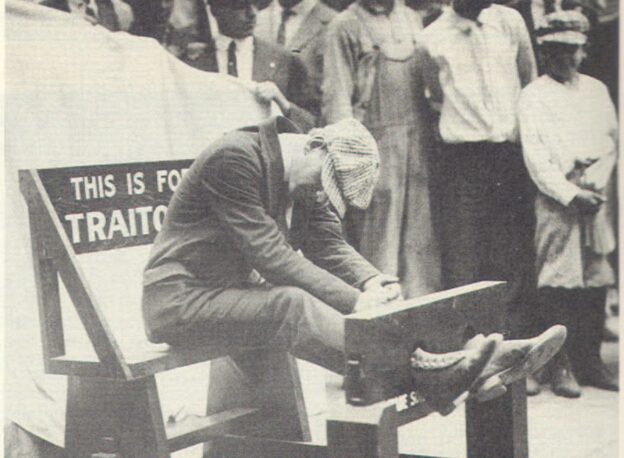Dear Millenials,
I was you once.
People wanted to know what I thought. They wanted to know what I wanted to buy. They wanted to hear what I was looking for in a spouse, in a career – in a faith group. They talked about me in the news, they studied me to see which way I was likely to turn, they taught older people in churches about me: how to attract me, keep me, and prepare me to take over.
They were glorious days.
It was 2003.
I was the future of The Church, and The Church was going to crumble without me. (And I wasn’t even male!) Books were written by the cartload about Generation Y and the Emerging Church. What was emerging? Everyone wanted to know. No one knew exactly what, philosophically, postmodernism was (or wasn’t), or how, culturally, it would play out. The new Millenium was still pretty shiny, not long out of its box, and some trends were emerging. Trends were emerging, and they needed to be analyzed and utilized, stat, with urgency, or This Generation Would Be Lost, The Church As We Knew It Would Die, and We Would Fail the Great Commission While Also Failing to Be Cool Enough to Make It Attractive.
These were the days of corduroy and pseudo-bowling shoes, of iPods and the war in Iraq, of Gilmore Girls and emo music. The internet was still new-ish, a high school student named LeBron James was ready to join the NBA, the iPhone wouldn’t come out for several more years, Ellen DeGeneres was launching a new talk show after lying low for several years following the firestorm of her public coming out in 1997, and Mark Zuckerberg was still on good terms with the Winklevoss twins, though not for long.
The world was changing and the message was clear: adapt or die! We’d all seen You’ve Got Mail. We knew that print was dead and everything could now be done online. We knew that church services needed to be rich and multi-sensory, with dim lighting or mysterious incense or immersive participation. We knew that authentic expression of our emotions was important. It was time for conventional wisdom to be overturned. Generation Y was tired of The Church doing it wrong and squandering wasted opportunities.
From about 2003 to 2010, books kept churning out on Generation Y and the Emerging Church.
You see, we knew.
Except of course we only knew a little. The internet was going to be everything – but now, Amazon has brick-and-mortar stores. Immersive sensory worship was going to replace shiny fake productions – but now autistic people find immersive sensory worship intolerable. We thought we were authentic; but scandals lurked, hidden in our hip worship environments.
But it gets worse. It’s not just that we were only partially right – or perhaps, that we were right, but with limited perspective.
No, it got worse. You see, you came along. And the problem isn’t that Millenials are a problem. The problem is that you were the new us.
Youth pastors tossed their books about Generation Y into the trash, church leaders forgot about the Emerging Church, and front office workers started lining up conference speakers who could explain about the new generation we would all need: the Millenials. Generation Y turned 30, started buying infinity scarves at Target, and began to broadcast themselves in a million and one podcasts.
But these? These are the days of skinny jeans and mermaid hair, of Snapchat and protest marches, of Girls and Hamilton. Smartphones are still new-ish, LeBron has left Cleveland for the second time, virtual reality sets are popular Christmas gifts, the Obamas have retired from the White House, Ellen and Portia are a popular Hollywood couple, and Mark Zuckerberg left Harvard long behind to testify before Congress about how his social media platform could be hijacked by foreign interests to impact U.S. elections.
Now you are the future of The Church, and The Church is going to crumble without you, books are being written by the cartload about Millenials. What is emerging? Everyone wants to know, you see. No one knows exactly what will play out. Trends are emerging, and they need to be analyzed and utilized, stat, with urgency, or This Generation Would Be Lost, The Church As We Knew It Will Die, and We Will Fail the Great Commission While Also Failing to Be Cool Enough to Make It Attractive.
Enjoy it while it lasts. Generation Y will meet you at the Starbucks in Target when no one talks about Millenials anymore. We’ll show you where the infinity scarves are. If that sounds cynical and snarky, I can point you to a number of books that will delve into Gen Y and our cynicism.
Millenials, I don’t think that publishers are to blame for the popularity of the unending cycle of demographic-expert-books that church leaders fall on in a piranha-like feeding frenzy. The emerging generations aren’t to blame, either. I didn’t ask to be studied and written about, and neither did Gen X, and neither have you, and whomever follows you.
No, North American Protestants are pretty obsessed with emerging youth culture. I could blame the Baby Boomers, but that seems like something they would do to their parents, and it’s probably part of my generational quirk to not want to do anything a Baby Boomer would do.
No, Millenials, it’s not your fault that church leaders will hang on your every word until you turn 30 and disappear as the next new generation comes along with its wisdom. And you know, some of your input will be really valuable. Some of it, I’m sorry to say, will turn out to be bunk, like the late 90’s trend of wearing JNCO jeans or pastel butterfly hair clips.
The solution I think, Millenials, is to ignore the somewhat condescending flattery – I wasn’t indispensable, and neither are you – and instead to receive the weighty gift of living in community. That may mean sitting in a church service not specifically designed for your preferences; it may mean adapting to someone else because a relationship with them is worth having, even if it’s framed in ways you don’t intuitively understand. It means families with young kids, and elderly widows. It means rural settings and pick-up trucks. It means single women in their 40’s and urban gardens. It means patience, and sacrifice. There is so much to be gained by listening: not hashtagging or snapchatting, just listening: listening to people is one of the best gifts any emerging generation can give.
In Youth is an Idol, one pastor touches on some of these truths. She concludes by celebrating the gift of intergenerational, multigenerational living, writing,
If you want your church to have the vitality and influence of young minds, young faith, young energy, and young joy, then invest in spiritually mature adults with a passion for pouring into young lives. Give spiritually mature adults a vision for seeing their age as a calling. In fact, I’d argue that this is the greatest gift of eldership: it is in shepherding the next generation. Elders must learn to listen and shape and young adults must be bold in seeking out older adults who can shape them.
You already know, Millenials, just how much we all need each other. If there’s anything that will just become more true in the next ten years of your life, it’s that. Don’t believe anyone who tells you that you’re indispensable to any faith community. Because none of us is. But believe everyone who tells you that community is indispensable as part of the Christian faith. You and I aren’t always assets, our thoughts and feelings aren’t always reliable, and older people aren’t always liabilities, and their thoughts and feelings aren’t always unreliable.
The Church is always worth engaging in – but not because only you can save it.
I was you once…
And I really hope you’ll stick around after the dust settles and the next generation moves in. We need you – just not for the reasons we say. We need you, only – and completely – in the way that we need 65-year-old’s, and four-year-old’s, and 41-year-old’s.
We need you because we love you: not because of what you can do for us. So we’ll continue to need you after your moment in the spotlight has passed. Because we’ll continue to love you then, too.




 Truth is beautiful: so communicating truth, however confrontational, cannot be done in a way that smears the inherent beauty within our fellow humans.
Truth is beautiful: so communicating truth, however confrontational, cannot be done in a way that smears the inherent beauty within our fellow humans.





